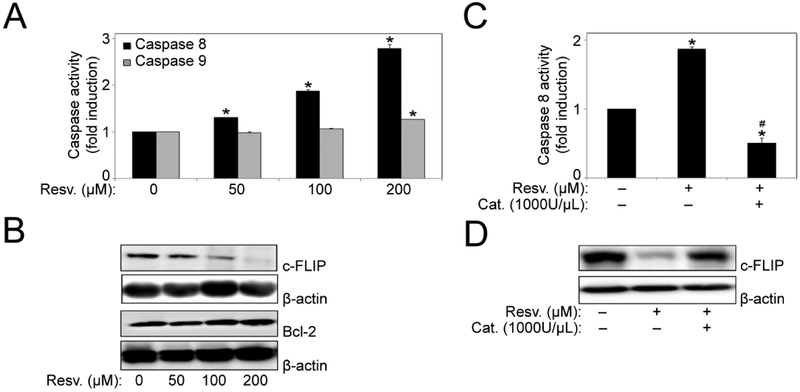Fig. (3).
Resveratrol mediated regulation of apoptosis regulatory proteins. (A) H460 cells were treated with resveratrol (0–200 μM) for 12 hours and cell lysates were analyzed for caspase-8 and −9 levels using Caspase activity assay. Plots show relative fluorescence intensity over untreated control. (B) H460 cells were treated with resveratrol (0–200 μM) for 12 hours. Cell lysates were collected and analyzed for c-FLIP and Bcl-2 protein expression by Western blotting. All blots were reprobed with β-actin antibody for loading control. Representative blots from three or more independent experiments are shown. (C) Cells were treated with resveratrol for 12 hours in the presence or absence of Catalase 1000 (U/μl) and caspase-8 activity was assessed by Spectrofluorometry. (D) Cells were treated with resveratrol for 12 hours in the presence or absence of Catalase 1000 (U/μl). Cell lysates were collected and analyzed for c-FLIP protein expression by Western blotting. All blots were reprobed with β-actin antibody for loading control. Representative blots from three or more independent experiments are shown. Data are mean ± S.E.M (n=3). *, p < 0.05 versus non-treated control. #, p < 0.05 versus resveratrol (100 μM) treatment.

